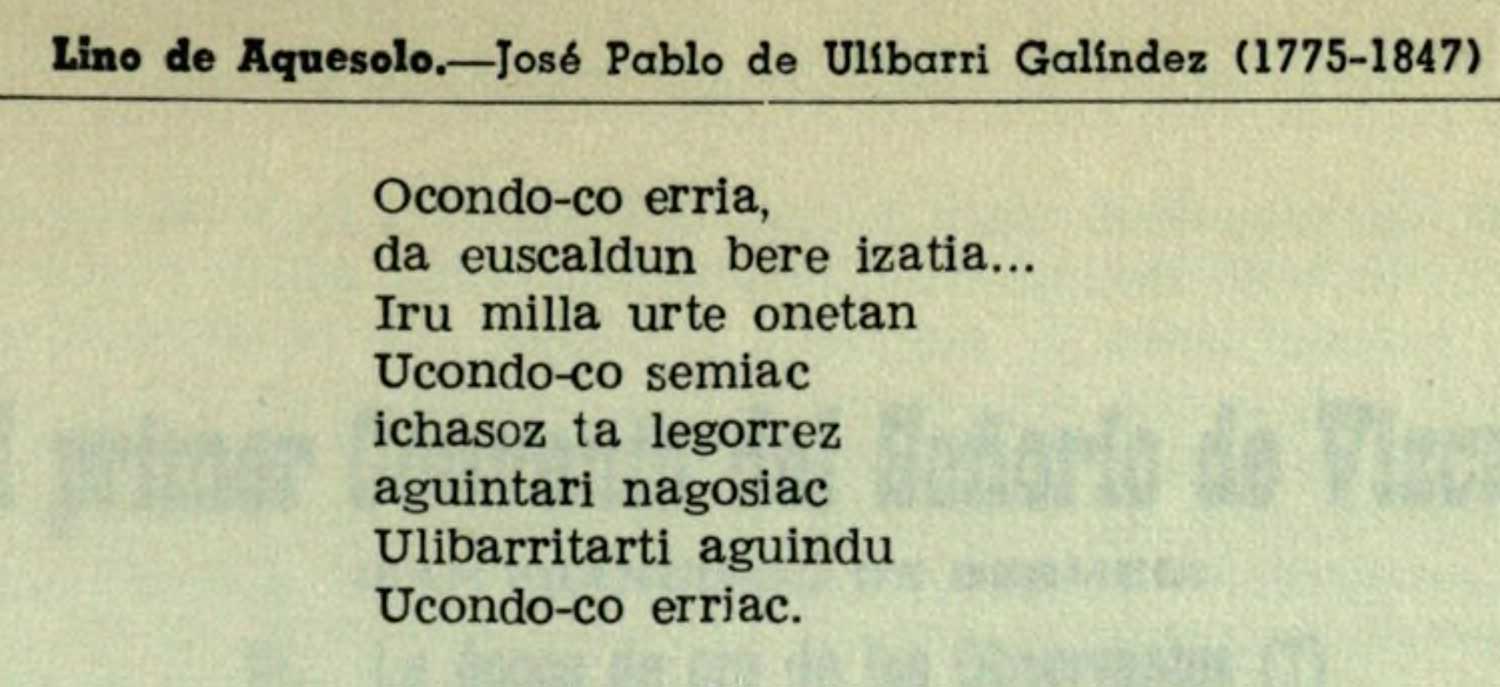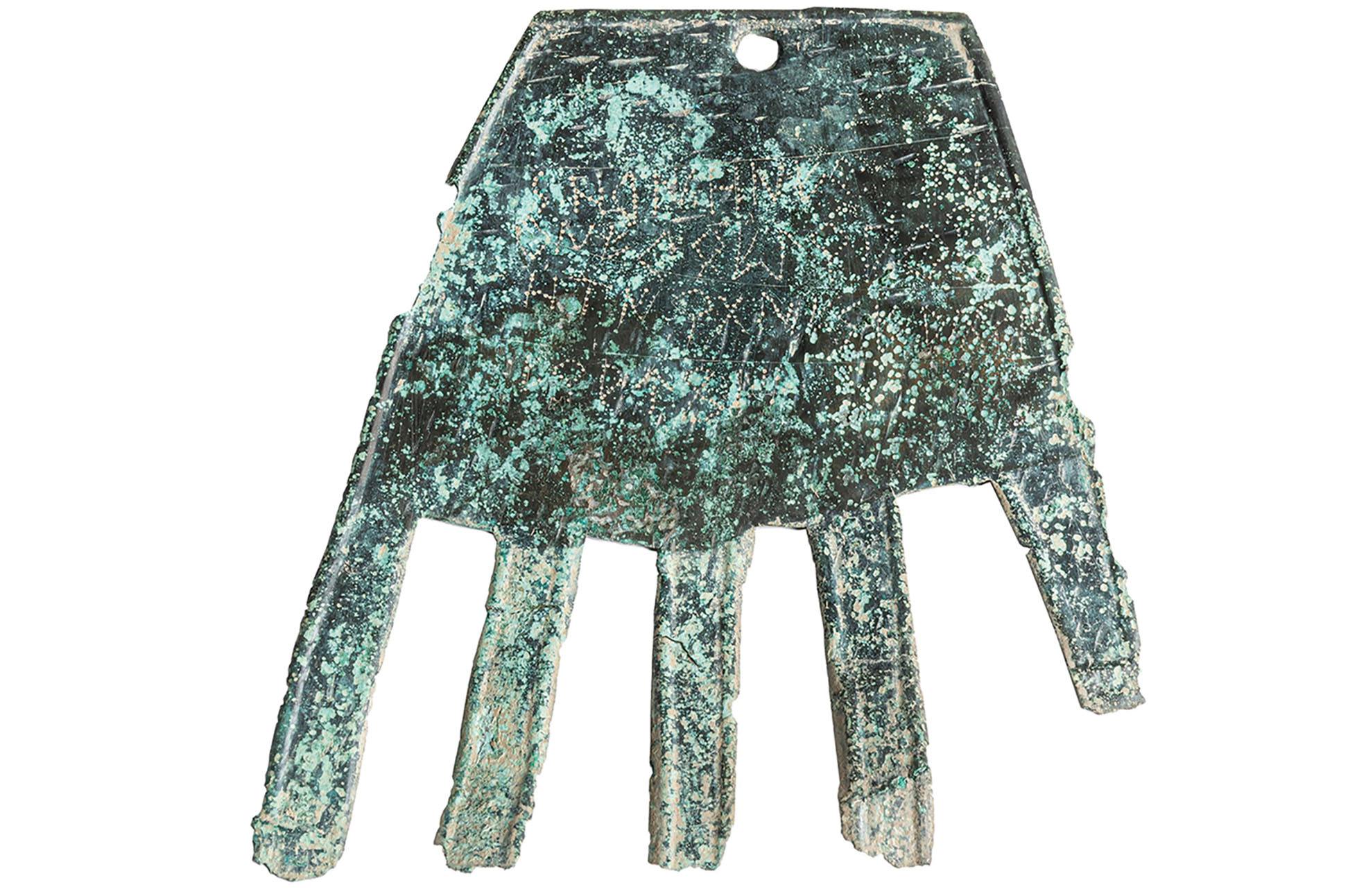José Pablo Ulibarri: euskaldunei euskaraz

If in 1785 we traveled to the Church of Abando in Bilbao, we would see a 9-year-old boy coming from Okondo in Álava. She went to study the veterinary office at her aunt's house. Later, under 20 years old, he traveled to Gipuzkoa to fight France. Upon his return he married and soon became one of the most prominent inhabitants of Abando, writer and intellectual. José Pablo Ulibarri Galíndez was the boy who was graceful.
The texts of that time are not very useful for understanding the intimate and political education of men and women, and we cannot know exactly what happened in this boy's life, to become Mr. José Pablo Ulibarri we know, but I have some ideas about it. Certainly, the place of birth was important. As Ulibarri himself said, "Okondoko herria is/ euskaldun bere izatia". In this regard, he gives us more information: apparently, he had two schools, which spoke in Basque, associated with two parishes. And there was another school to learn how to do it in Spanish, for those who wanted to migrate to South America. For this reason, Ulibarri himself lived suing and attended Basque school.
Then, in the village that would live in adulthood, in Abando, it would have a lot to do with its life trajectory. In fact, in Abando a small group of fans of Basque culture emerged along with the flowering of the printing press in Basque lands. They did not focus on the closets network, acquired good social positions and worked for the Basque people, both in the institutions and in the public. Our José Pablo, for example, became mayor. As a collegiate office, he worked with other men. And who? There is Eleuterio Basozabal, husband of writer Bizenta Mogel. Mogel, Basozabal, Ulibarri and others together awakened and promoted a transformative environment.
In that seedbed, shortly before the Carlists Wars, years before the birth of Sabino Arana, they taught the Basque Country as a pillar and built the modern conscience of the Basque Country.
Among other things, they began to publish the bertso-paperak, which invented villancicos, printed them and then distributed them on the portals. And these songs used them to spread their ideas about Euskera, making Euskera a contentious issue. In that seedbed, just before the Carlists Wars, a few years before the birth of Sabino Arana, I think they had taught the Basque Country as a pillar and built the modern consciousness of the Basque Country.
Our high Ulibarri is an excellent source of research. He kept his letters from 1823 to 1844 and other documents and carefully completed the collection known as Book of Letters. It's a treasure trove of incalculable value, I think, and surely we still have to find it right. Although in 1975 the Council of Álava published the facsimile, that is, it published it in the form of a gross manuscript, as I know, neither the complete transcription of this work nor the digitalization of the text has yet been carried out.
At the moment, only a few scattered parts of the articles that can be found in each have been transcribed. In these parts, for example, we can read how it determines that this worker will have to make the language of his house (“the one kept in the house of Ulibarri”), or to know the relations he maintained with several vasophils from all places in Euskal Herria, or to know his main maxim: to do it in Basque whenever possible and, above all, to do it always in Basque with the Basque people. In fact, a simple and effective maxim, like Ulibarri himself. Another nice anecdote is related to the minutes of the City of Abando. He had to take the record, but he had to do it in Spanish, legally bound. I didn't give him any grace. For this reason, the year 1826 began with sorrow: “Enter more in the year 1826, in the Spanish language, skiriunited”.
As for institutional policy, he had an ambitious plan: he wanted to officially promote Basque education in the Provincial Council of Bizkaia. There he began to tie himself to him, to present his proposal at the General Meetings in 1829. But he suffered a serious accident and had to stay at home, impossible. In one of his letters he tells his wife the circumstances of the accident: "When I went down at nine o'clock in the evening, when I walked past my hand with light, I walked three or four chestnuts involuntarily, I slipped through the second half of my second puncture; today in the middle of the guarded and soft bodies I received a nail astrapal blow (...) and in my head I rushed the bad air that made me"
And so the dream of this Alavese to turn Euskera into the language of school ended. But, well, seeds are always kept somewhere, right?
When we join archeology and site, an image of several people sitting on the ground will come to us, raising and cleaning the ground with palettes or brushes, welcoming the surrounding spaces with rope, some wheelbarrow and sieve, meter… We have seen it in Irulegi and Iruña... [+]
Fontes Linguae Vasconum has published papers written by several researchers from the Faculty of Letters of the UPV/EHU on the Hand of Irulegi. In short, most professors say that the Hand of Irulegi is not written in Basque or in another language related to it.
The arguments of... [+]









